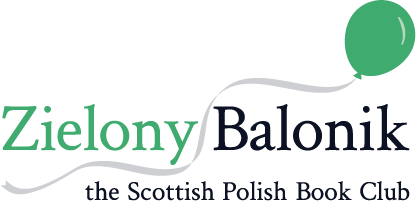The Gates of Europe: A History of Ukraine (2015)

From award-winning historian Serhii Plokhy, The Gates of Europe is the definitive history of Ukraine that helps us understand the country’s past and the current crisis
At the western edge of the Eurasian steppe, caught between Central Europe, Russia, and the Middle East, Ukraine has long been the meeting place of empires – Roman to Ottoman, Habsburg to Russian – that left their imprint on the landscape, the language and the people. The frontier between Islam and Christianity created a class of ferocious warriors known as the Cossacks, while the encounter between the Catholic and Orthodox churches led to a religious tradition that bridges Western and Eastern Christianity. Ukraine has been a home to millions of Jews, serving as the birthplace of Hassidism – and as one of the killing fields of the Holocaust.
In The Gates of Europe, award-winning historian Serhii Plokhy examines the history of Ukraine’s search for its identity, bringing together some of the major figures in Ukrainian history: Prince Yaroslav the Wise of Kyiv, whose daughter Anna became queen of France; the Cossack ruler Ivan Mazepa, who was immortalized in the poems of Byron and Pushkin; Nikita Khrushchev and his protégé-turned-nemesis Leonid Brezhnev; and the heroes of the Maidan protests of 2013 and 2014, who embody the current struggle over Ukraine’s future.
As Plokhy explains, the recent conflict with Russia is a tragic case of history repeating itself, as Ukraine once again finds itself in the centre of a battle of global proportions. Fascinating and multilayered, The Gates of Europe is the essential guide to understanding not just Ukraine’s past but also its future.
Buy online:
Zielony Balonik book club notes:
The book is the product of decades of work, and was finished just before February’s invasion. Some members had heard Plokhy speak at the EIBF during the summer. He debunked Russian historical myths, in the process explaining why Russians make the claims they do. cf his other book Lost Kingdom: The Quest for Empire and the Making of the Russian Nation (2017).
The importance of geography in forming a state – an island in Great Britain’s case – in Ukraine, rivers break the open steppe, rivers as defining lines, the Black Sea to the south. Long-standing political and cultural differences between right-bank and left-bank Ukraine, separated by the Dneipr River (right here means west, left east). In the opening chapters, the fluidity of settlement is striking, as many tribes pass through. The fluidity of what defines a country. Volodymir chooses which religion is the best for him – in terms of alliances and conferring authority. The name of Ukraine probably comes from the old Slavic term for “borderland”. It is still seen by some as a land on the edge, a wild and untamed area, an area and not a political state.
Muscovy’s vision of itself as the third Rome. Catherine the Great got rid of the ‘hetmans’ – traditional leaders – and introduced feudalism / serfdom to the Russian-controlled Ukrainian lands. The development of Odessa from the 1794, its becoming a summer resort for Russian elites. (We recalled Chekov’s story ‘Lady with a Lap Dog’ – but in fact that takes place in Yalta, a much older settlement.)
Plokhy skims over the violent Galician uprising of 1846, when Ukrainian peasants were encouraged by the Austrian imperial authorities to rise against their restive (nationalist) Polish landlords. Defeat in the Crimea in the 1850s – Russians have long historical memories. Anti-Semitism – Jews were often the interface between landowners and farmers / peasant. The Poles retained their sense of nationhood during the partitions. But Ukraine didn’t have a similar history to look back to, to base a future on. Welsh Mr Hughes, founding the iron industry in eastern Ukraine (then part of the Russian Empire), and having a town named after him (Yuzivka, now Donetsk).
Timothy Snyder, The Red Prince, about Wilhelm von Habsburg (1895-1949), who had ambitions to become King of Ukraine.
Stalin’s favourite book was Bukghakov’s White Guard, about the civil war (early 1920s) in Ukraine. In the 1930s, Stalin worried that Poland would destabilise Ukraine. Anne Applebaum’s Red Famine, about the 1930s famine; Erin Littekin’s novel The Memory Keeper of Kyiv, about the same period.
Post-WW2 Polish evacuees’ sense of loss after their explusion from the ‘eastern territories’ (Volhynia, Lviv).
Interesting on more recent history – Kruschev’s and Gorbachev’s Ukranian connections. Kruschev gave the Crimea to Ukraine in 1954 to mark the 300th anniversary of the Pereislav Council, when the Coassack Hetmanate accepted the protection of the Czar of Muscovy. As Plokhy explains it, it was to revive the Crimea’s economy after the deportation of the Tatars after WW2. Soviet policy on Ukrainian language flip-flopped.
Ukrainian independence was a remarkable achievement. When Jenny and Stuart were there, their making the effort to speak Ukrainian was much appreciated.
The notion that Ukraine is a fascist state still has traction in Russia. Putin’s anger over the Ukrainian Orthodox Church acknowledging the Patriarch of Constantinople and not that of Moscow. Mishy Glenny on BBC R4 spoke of the wealth of rare and hugely valuable metals in Donetsk, a fact which may colour Putin’s ambitions.
There is a decommissioned Russian tank outside the castle in Warsaw. Even before the war many Ukrainian women came to work in Poland, often as cleaners. Many Poles think Ukrainians expect too much support.
The cruise liner at Leith Docks, made available by the Scottish Government for Ukrainian refugees. In Edinburgh Windsor Street has been (unofficially) renamed Volodymir Zelenskyy Street.
A complex, dense, informative book, which gives a fair description of Polish / Russian / Ukranian views and relationships with one another. Good maps, and the timeline and Who’s Who are very useful, though some charts might be helpful.


